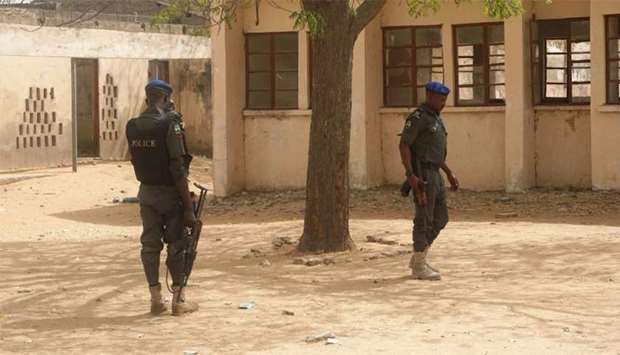A suspension of humanitarian operations has been extended in a remote town in northeast Nigeria where three aid workers were killed in a Boko Haram attack, medical charity Doctors Without Borders (MSF) said on Saturday.
MSF and the UN pulled out their staff from Rann, on the border with Cameroon in Borno state, after the attack on March 1.
The UN suspended its activities for one week until Friday.
But the suspension has now been extended until Tuesday next week at the earliest, the UN in Abuja said, while MSF said it had no timeline for a return.
‘We think that the entire area is not protected,’ the charity's emergency coordinator for Borno, Kerri Ann Kelly, told AFP.
‘Until there's more protection it will be very hard to operate. It's a fairly exposed area... I had 19 people up there that day, lying on the ground going on for 90 minutes, so security drives the mission.’
MSF, the UN children's agency Unicef and the International Committee of the Red Cross were among those providing emergency food, medical care and other programmes to some 80,000 people in Rann.
Of those, about 55,000 were living in a camp for people displaced by the insurgency, which began in 2009 and has ravaged the northeast, killing at least 20,000.
Kelly said the suspension leaves those people without healthcare and no access to food distribution -- and time was pressing to resume activities before the arrival of annual rains from mid-May.
Last year, Rann was cut off due to flooding during the rains, while across the northeast food shortages become more acute and diseases such as malaria increase.
‘If we can't get up there, the rainy season is going to be a problem... We are really concerned about being able to be prepared for this rainy season,’ said Kelly.
But even before then, there are fears about the effect of a prolonged suspension on clean water and sanitation programmes for those in the camp, after previous outbreaks of water-borne diseases such as typhoid and cholera linked to poor hygiene.
The UN has appealed this year for $1.05 billion to fund its operations in northeast Nigeria, where the insurgency has left millions homeless and dependent on aid.
The Rann attack -- which also saw eight Nigerian security personnel killed -- also prompted fresh doubts about government claims the jihadists are virtually defeated.
The surrounding countryside has witnessed a series of attacks, highlighting the continued difficulty for the military to secure hard-to-reach areas outside urban centres.

